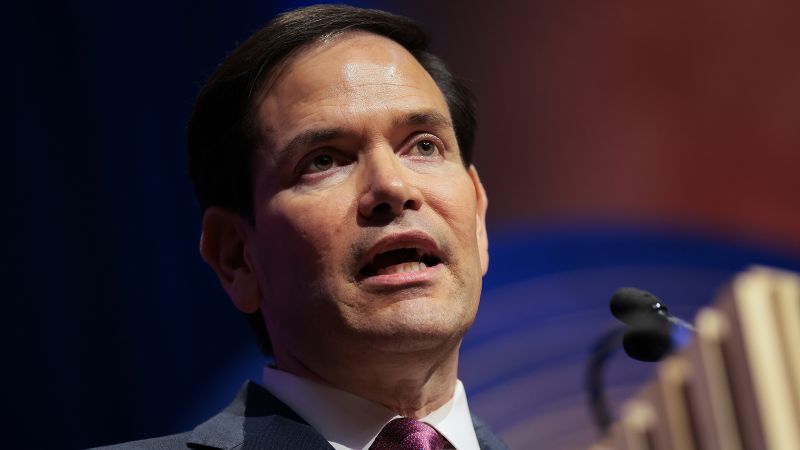The US State Department told embassies and consulates they must vet student visa applicants for “hostile attitudes towards our citizens, culture, government, institutions, or founding principles” but said they may resume appointmentsthat were pausedin late May.
The new guidance was sent to US diplomatic posts worldwide in a cable seen by CNN Wednesday. It comes as the Trump administration has taken significant actions that are likely to deter international students from coming to the US. It has aggressively revoked student visas and specifically targeted Harvard University.
The latest guidance “requires consular officers to conduct a comprehensive and thorough vetting of all FMJ applicants, including online presence, to identify applicants who bear hostile attitudes towards our citizens, culture, government, institutions, or founding principles; who advocate for, aid, or support designated terrorists and other threats to U.S. national security; or who perpetrate unlawful antisemitic harassment or violence,” according to the cable.
The guidance, which applies to both new and returning applicants for student and exchange visas, formally known as F, M, and J visas, calls for “a review of the applicant’s entire online presence – not just social media activity – using any appropriate search engines or other online resources,” including “a check of any databases to which the consular section has access.”
The guidance,first reportedby the Free Press, does not give details of what constitutes “hostile attitudes towards our citizens, culture, government, institutions, or founding principles.”
The cable says embassies and consulates should implement the new vetting within five business days. They “should resume scheduling FMJ appointments but should consider the effect of this guidance on workload and schedule accordingly.”
They should prioritize expedited visa appointment requests for “J-1 physicians (and) F-1 students seeking to study at a U.S. university where international students constitute 15 percent or less of the total student population, according to the U.S. Department of Education.”
The new vetting, the cable states, is being implemented to ensure “that aliens seeking admission to the United States are screened and vetted to the maximum extent possible and that they will respect the terms of their admission to the United States.”
It notes that such vetting is particularly important for these applicants, noting that “the FBI has long warned that foreign powers seek access to American higher education institutions to, among other things, steal technical information, exploit U.S. research and development, and spread false information for political or other reasons.”
Applicants will be asked to set their social media profiles to public, and the cable says consular officers should “remind the applicant that limited access to, or visibility of, online presence could be construed as an effort to evade or hide certain activity.”
“During the vetting, you simply are looking for any potentially derogatory information about the applicant,” the cable instructs consular officers, and says they should screenshot relevant online findings.
Even if the “inconsistencies or potentially derogatory information” does not rise to the level of ineligibility for a visa, “you must consider whether they undermine the applicant’s credibility or suggest that the applicant will not respect the terms of his admission to the United States.”
“For applicants who demonstrate a history of political activism, especially when it is associated with violence or with the views and activities described above, you must consider the likelihood they would continue such activity in the United States and, if so, whether such activity is consistent with the nonimmigrant visa classification they seek,” the cable notes. “As Secretary Rubio has said, we do not seek to import activists who will disrupt and undermine scholarly activity at U.S. universities.”
